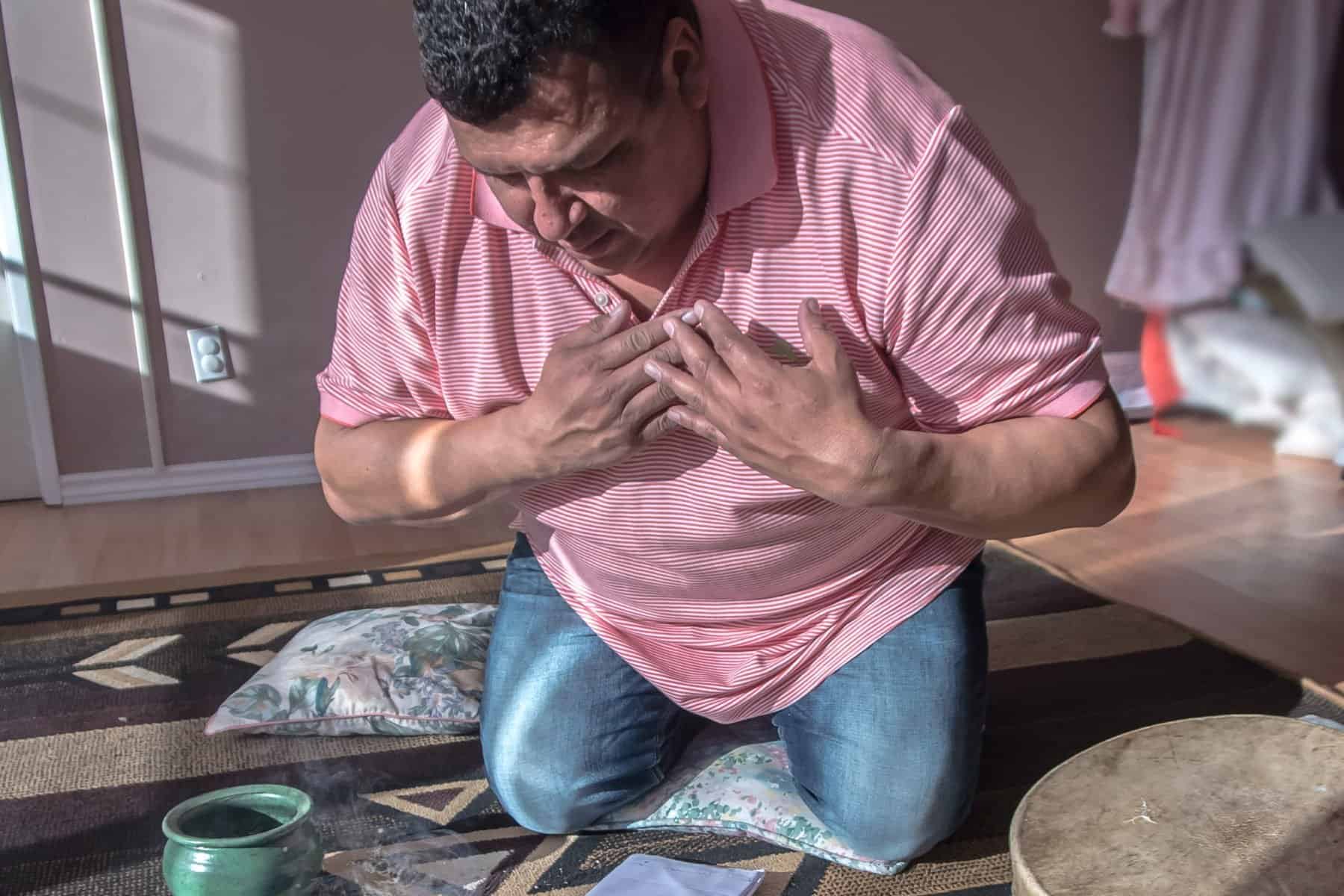As we completed our smudge and sharing circle during our Cultural teaching night, one of the youth approached me and had talked about having dreams of her late mother and brother. She shared how she dreamed of them during the night and was anxious and wanted to understand what her dreams meant. I shared with the youth how in our culture when our loved ones pass away into the spirit world we honour them with a pipe ceremony, sweatlodge and a feast.
I also explained to her that our elders tell us “When we dream of our loved ones that have made their journey to the spirit world, they honor us by visiting our dreams. When this happens, it is important to smudge lift your tobacco make an offering of prayer and then feed the spirits in the sacred fire.” I then asked the youth if her family ever held a feast to honor her mother and brother and she replied quietly “No.” I assured the youth that it was ok and we would consult with our elders on the right way to approach things.
On my next visit to the home I brought tobacco and cotton broad cloth and showed the youth how our elders use the tobacco and cloth while praying. I explained the importance of making this protocol and seeking guidance form our elders and how we would make our own prayer ties to make offerings. We then each took a handful of tobacco and lifted it up and prayed. We then wrapped the tobacco inside the cloth forming a round ball in one corner of the two-meter-long cloth. I told all the youth I would now be able to approach our elder and make a request of guidance.
I attended the next earliest sweatlodge smudged my protocol that the youth made and handed them to the elder and made my request for guidance. The elder lifted his pipe, tobacco and cloths and made prayer offerings using his beautiful Cree language. We then completed four rounds of prayer, singing and sharing inside the sweatlodge. He instructed me to contact the elders, the kookom and the youth workers to arrange the feast. There will be a pipe, sweatlodge and a feast to honor these family members that have gone on their journey, bring the youth, their family and offerings on the day of the feast.
After several months of arranging and consulting, our day for the feast finally arrived we were filled with both relief and excitement as it seemed like this day would never come. As instructed we made our soup offering and attended the ceremony site. We participated first in the pipe ceremony where the elder asked for the names of the deceased we are honoring. The youth told the elder their mother and brothers names and he spoke them into his prayer while he lifted the pipe. I explained to the youth in our culture we are taught not to speak the names of our loved ones that have made their journey unless we are in ceremony, this is a sign of great respect.
Upon completing the pipe, prayers and singing within the sweatlodge we sat on the ground around the food that was prepared for the feast. The oscapious/helpers smudged the rice soup, moose stew, the berries, fish, bannock, and tea then served the elders and all the families in attendance. The elder lifted a plate offering of all the food smudged it over with sage and said a final prayer. We then enjoyed the traditional dishes until we could not eat anymore. The elder then instructed his oscapious/helpers to put the food into the fire for the loved ones that are in the spirit world.
I am pleased and happy that we were able to help the youth learn about their culture while honoring their loved ones in this way. I recognize that our culture that was once forbidden is resurging and coming back stronger than ever. As we embark on Aboriginal/Indigenous day celebrations throughout the country I am reminded that we do not have to be related by blood to be part of a family.
Meegwetch
Marcel Desjarlais is the Aboriginal Resource Coordinator for our Spirit of Our Youth homes.
